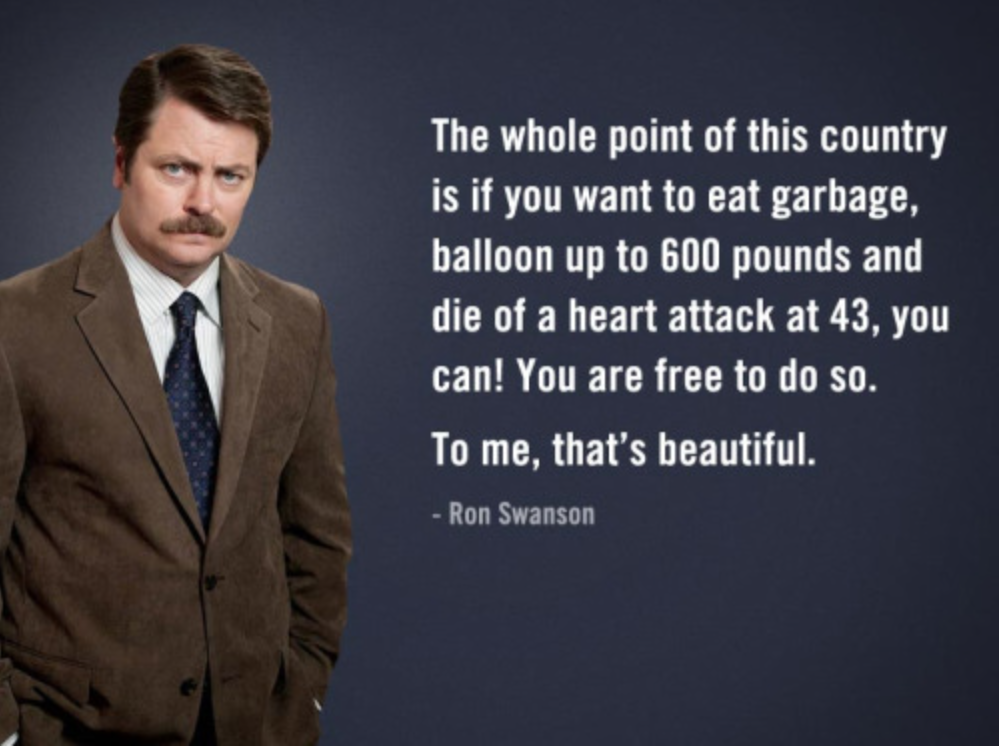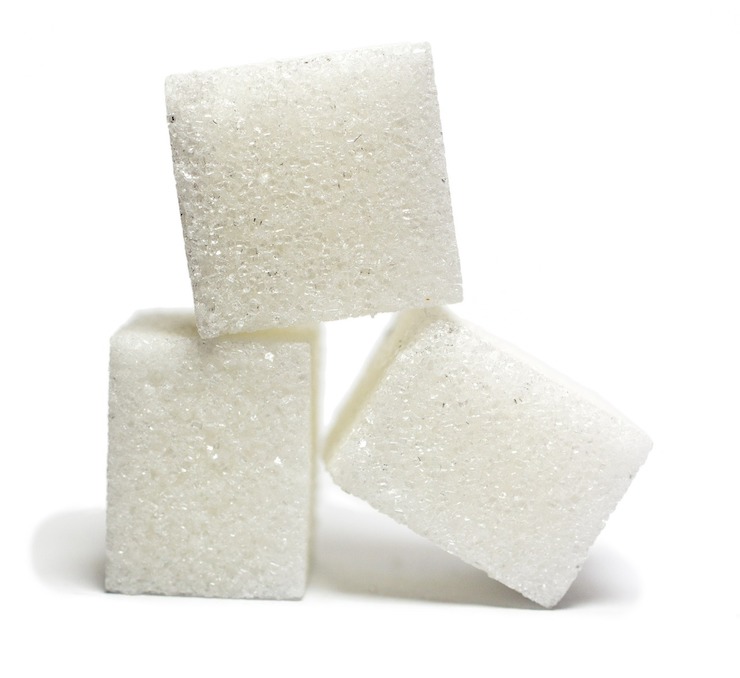Not all sugar is created equal, and I’ll tell you what you need to know to tell the difference.
The nutrition world just got hit with another controversy – it’s white, sweet and practically EVERYWHERE. Sugar has been around since ancient times, but only now is receiving flack. Why? Well, many scientists are now concluding that our excessive use of sugar in our food supply may be correlated to the excessive rise in type 2 diabetes and obesity. Hmm, coincidence?
Over the past two weeks, sugar has been on many people’s mind and the media’s to-do list. We owe this attention to Gary Taubes. Gary Taubes is an American author whose interests have focused mainly on medicine and nutrition. He has recently published a novel known as: The Case Against Sugar and this book has garnered a lot of attention in the media because of his claims. His main conclusion is that our high intake of carbohydrates stimulates the production of lots of insulin which causes the body to store fat.
The strongest case scientists have to make the link between sugar and obesity is sugar-sweetened beverages. The WHO gathered systematic literature (the gold standard in research) reviews and other studies that showed a significant association between these liquid sugar beverages and obesity.


Countries around the world have acted on this link by imposing sugary drink taxes. I’m sure we all remember Bloomberg giving it a whirl, when he wanted to prevent the sale of 16oz or greater containers of sugary drinks. Many critics saw this as an attempt to create a “nanny state” and at the last minute the State Supreme Court dismissed the law and Bloomberg’s dreams were crushed.
I have to give Bloomberg credit for his efforts. I know the libertarians out there, like Ron Swanson would say:

Photo Credit: ronsays.tumblr.com
But Bloomberg was not only looking out for the health of his city but also healthcare spending.
Mexico has one of the highest rates of obesity and I am positive that translates to mucho public healthcare costs. Due to these numbers and the evidence around sugary drinks and obesity, Mexico imposed a 1 peso/L (0.06 CND) tax on sodas. Since then, the sale of sodas has gone down and the purchase of water has gone up. Success? It’s a step in the right direction and countries worldwide are following suit.

But let’s not get ahead of ourselves, the study looking at sugar-sweetened beverages did not look at total sugars, so we can’t yet make the blanket statement that all sugars are evil. It is hard for research to study the effects of total sugar because when I think of sugar, as an RD, I think about sugar found in whole foods like milk, breads and fruit. Remember those?
When we break these foods down we see sugars like sucrose, lactose, fructose and glucose. These same sugars are added to highly processed foods, but the one difference is that whole foods provide us with an added bonus: vitamins, minerals and nutrients. The problem with highly processed foods is that someone out there is engineering your food – they are adding loads of concentrated sugars that many of us can’t pronounce.
I think the lesson from all of this, is that sugar is not evil, but the way sugar is used in highly processed foods is evil. Before I throw around the term: processed, I want to explain a few things. Some people (I don’t want to point out anyone in particular…. But they tend to gravitate towards the cleanse/clean eating lifestyle) will make blanket statements like: “I’ve cut out all processed foods and I feel great… you should try it Debbie! I’ve lost like 20 pounds!”.
So Debbie’s probably wondering, what makes a food processed?
You have to think of processed foods as a continuum. Cutting out processed foods is kind of impossible, because a food can be considered processed if it’s frozen, dried or chopped up – it basically describes a change to a food before it’s eaten. So those frozen berries and pre-washed container of kale you throw in your smoothie are actually considered processed foods –minimally processed foods to be exact. As we move along the processed foods continuum we get to the extreme end known as ultra-processed foods.

Dietitians of Canada defines ultra-processed foods as: “formulations made from substances extracted or refined from whole foods (i.e. cookies, soft drinks, prepared dishes)”. These foods are usually injected with more added salt, sugar and fat which make them packed with more calories than the average home-cooked meal. These are the foods we want to limit. Gary Taubes is speaking particularly to these foods. Foods that may have originally been whole foods, but have been engineered to such an extent that you don’t even recognize them anymore. Scary stuff.
We also can’t ignore the societal context we live in now. Things are different. We’re using technology for practically everything we do, and we’re moving less. We need gadgets like Fit Bits and Apple Watches to tell us to move. Our sedentary lifestyle and our dependence on quick accessible foods is hurting us… So like some things, we have to go back to the basics. And we are. We’re starting food gardens, we’re bringing food back to cities, we’re baking bread, canning foods, and learning to cook.
I think food innovation is great, but there are dangers of changing food too much. Much like ultra-processed foods, we are using food technology to create evil beings, our grandmothers wouldn’t recognize. When talking about food, keeping things simple is a concept I like to lean towards.
So this war on sugar… what side am I on? I’m on the natural sugar containing foods side. Here are some tips to stay on the right side of history:
- Throw fruit in yoghurt/cereal to still achieve that sweetness effect
- Maybe your favourite 12 grain loaf of bread contains sugar, but remind yourself of the fibre and vitamins and minerals you’re getting from that bread
- Spend more time in the outskirts of the grocery store – that’s where the whole foods are
- Slowly cut back on the sugar that you add to your coffee – over time you won’t even miss it
- Watch out for those flavoured lattes and blended drinks – I used to work at Starbucks, and let me tell you that I got a fairly good workout by pumping those syrups into cups. Ask for half sweet next time you’re at your fav coffee joint and over time reduce your intake
- Use sugar substitutes like apple sauce or dates when baking
- Read food labels – thanks to lobbying and public interest there is a movement to have clearer sugar details on food labels, by specifically distinguishing the type of sugars, so be proactive and keep an eye out.
- Keep an eye out for “low fat” foods – even though they are low in fat, this tends to mean they are packed with sugar to make up for the lack of fat flavour. So be sure to check the sugar content on the nutrition facts table.
I know it’s not possible to avoid added sugar, like adding sugar to coffee or baking a cake, but there are recommendations about how much added sugar we should have on a daily basis. The Heart and Stroke Foundation recommends no more than 12 teaspoons, while the World Health Organization recommends no more than 6 teaspoons.



![]()
![]()
![]()
Either way, this can provide you with a guideline. This guideline does not include natural sugar containing foods like the ones mentioned above (fruit, bread, milk…etc.). It means added sugars like: molasses, honey, table sugar and brown sugar.
The obesity and type 2 diabetes epidemic came quickly and doesn’t seem to be going away. There are a variety of factors influencing our health, but food is one thing we can try to control. The amount of sugar in highly processed foods is out of control, and countries have already tried to ban highly sugary drinks in schools. Too much of a good thing, becomes a bad thing, and we are starting to see that with sugar. Remember, not all sugar is created equal – whole fruits, vegetables, bread and milk provide us with a good dose of nutrients, vitamins and minerals and should not be avoided. Maybe the only war we should be starting is against ultra- processed foods.
Please give me a comment for your thoughts!

I do love the Ron Swanson quote 🙂 This was helpful because I’m always asking myself, “well is 5g of sugar in fruit the same as in a cake?” Maybe I’ll go for the cake instead 🙂 So this was helpful at explaining the difference. I also like how it’s not like “cut all the BAD food out!” All in moderation.
LikeLiked by 1 person
Thanks for your comment Yam! We definitely don’t want to cut out all BAD food! Where’s the fun in that?! Thanks for reading!
LikeLike
awesome article, Sofia! In the end it all comes back to that wicked processed food that is everywhere. If we can go back to the basics of cooking without any processed food then we would all be a lot healthier. Bravo to you for illuminating all of us on sugar. Maybe the same should be done on the role of gluten in our diet and all those gluten-free products on the market??
LikeLike
Hey! Thanks Tracy. You make a great point there. Going back to basics would make things a lot easier. Thanks for reading!!
LikeLike